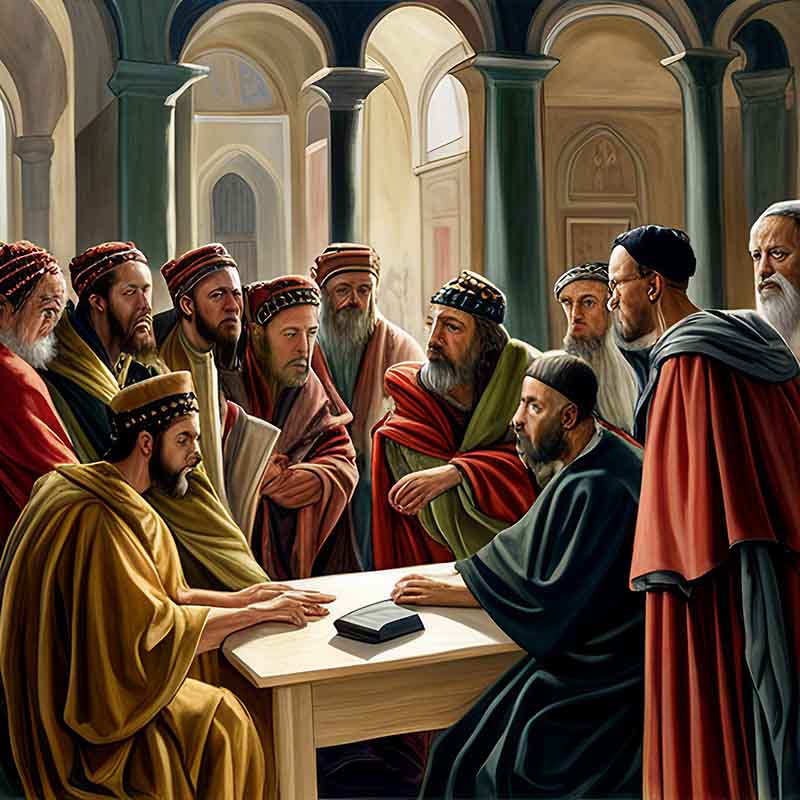The Jerusalem Council
AD 49
Video for this Bible Exhibit
Carousel of images for this Bible Exhibit
Listen to this Bible Exhibit
The Council of Jerusalem, also called the Apostolic Council, was the first general church gathering of apostles and elders held in Jerusalem around AD 49 Acts 15:1-35. The purpose of the meeting was to settle the dispute between the Judaizers, who insisted that Gentiles must be circumcised to be true believers in Christ, and those who were opposed to this, led by Paul, Barnabas, and Peter. This issue of whether Gentiles needed to ultimately become Jews to be followers of Christ threatened the early church’s unity and the broader mission of spreading the gospel to the Gentile world.
Paul and Barnabas told of their recent experiences of Gentile conversion from the First Missionary Journey in Cyprus and Asia Minor. Peter recounted how God accepted uncircumcised Gentiles by giving them the Holy Spirit. After much debate, some key points were established. First, God does not distinguish between Jewish and Gentile believers and that salvation is always by grace through faith. The inclusion of the Gentiles among God’s people was already anticipated and revealed in the prophets Amos 9:11-12 and confirmed through the signs and wonders shared by both Paul and Peter.
As head of the Jerusalem church, James, the half-brother of Jesus, rendered the council’s decision. First, Gentile believers should not be required to be circumcised or subscribe to the Mosaic Law as a condition of salvation or church membership. The council recommended that Gentiles abstain from food contaminated by idols, sexual immorality, the meat of strangled animals, and blood Genesis 9:4. An official letter, along with a small delegation of believers, went out with the Council’s decrees to the Gentile churches, recognizing that God did not require Gentiles to become Jews to be saved.
Luke reveals the Council’s crucial importance by placing it at the center of the book of Acts. Before the Jerusalem Council, the Book of Acts focused on the Jewish Christian community. After the Council clarified what had always been true, Acts shifted to the Gentile Christian community. This landmark event marked a significant step toward the universal spread of the gospel message.








